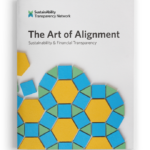Oil spills, carbon emissions and safety can now be reported on by companies in the oil and gas sector, thanks to new guidance published today (Wednesday 29 February 2012) by the Global Reporting Initiative (GRI).
Since the Gulf of Mexico oil spill in 2010, the sustainability performance of oil and gas companies has been scrutinized more closely by the public. This increased attention has meant greater awareness of the environmental and social effects of offshore and onshore oil and gas activity, and higher expectations of transparency and accountability by companies in the sector.
Todays new guidance will help companies in the oil and gas sector to report their sustainability performance including around issues such as environmental management, health and safety and emergency preparedness. The Oil and Gas Sector Supplement can be used by companies and organizations involved in the exploration, extraction, production, refining, and transport and sale of oil, gas and petrochemicals.
Nelmara Arbex, Deputy Chief Executive of the Global Reporting Initiative (GRI), said: For each business sector there are very specific sustainability issues to be managed. The oil and gas sector is one of the key industries to prepare for sustainable management, and their approach will heavily influence our future. Oil and gas companies are undergoing a huge transition, and operating sustainably is vital. GRIs Oil and Gas Sector Supplement aims to support this, enabling oil and gas companies to be more transparent about their activities and impacts.
GRI produces Guidelines that companies can use to report their sustainability performance. GRI also produces Sector Supplements tailored versions of the Guidelines that include sector-specific issues. Todays new guidance aims to make sustainability reporting more relevant for oil and gas companies.
Sustainability performance has become increasingly important for companies in this sector, said Glenn Kramer, Working Group member and Director Measurement and Reporting at Hess Corporation. We have an environmental, social and ethical responsibility to be transparent about disclosing our activities. The GRI framework, and in particular, the new Oil and Gas Sector Supplement, helps us understand the information needs of stakeholders, and is one of the key mechanisms for driving corporate sustainable policy development and decision making. Being transparent and providing full disclosure on the issues that matter to stakeholders has the added benefit of enhancing our credibility and reputation.
According to Kristina Rüter, Working Group member and Research Director at Oekom Research AG, transparency is vital for the oil and gas sector: Companies in this sector face considerable challenges in terms of minimizing environmental and social risks in their operations. Todays new guidance will help companies measure and report their performance, which in turn will increase transparency and comparability for analysts, responsible investors and other stakeholders, and drive change in the sector.
The Supplement was developed according to a multi-stakeholder process, with experts from oil and gas companies and stakeholder institutions brought together in a Working Group to develop the guidance. The public provided feedback through two Public Comment Periods before the Supplement was finalized.



